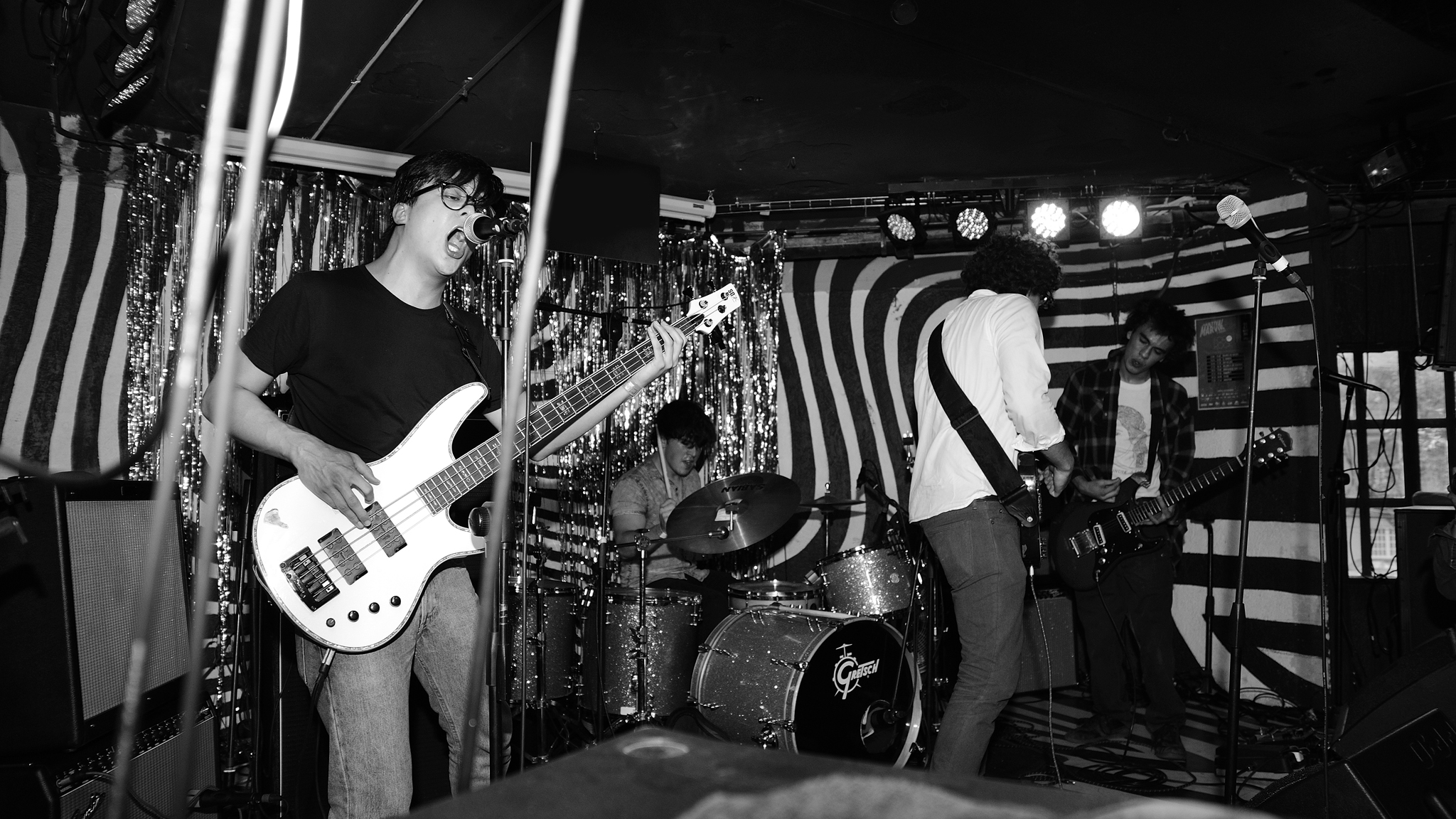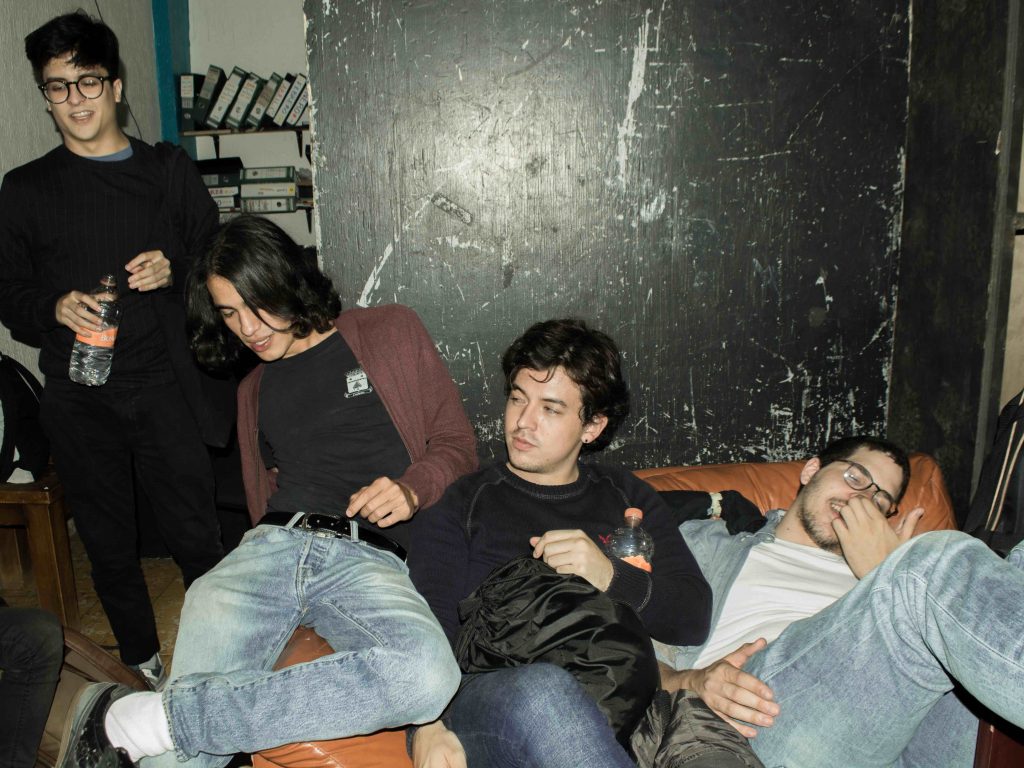Once upon a time, loud guitars used to mean something. They soundtracked youthful awakenings, rebellion, and the desire for liberation; their sounds were vital to changing times. These days, we’re seeing rock transform into something that mostly soothes listeners into comfort, a familiar sound for those who fear change.
While there are still plenty of artists who use guitars to great effect, they are few and far between. Those who excel at keeping the genre alive do so in part because the nature of the music is contradictory: rock should look ahead of the times but never forget the past, retaining a feeling of nervous energy but yearning for simplicity. It’s rare that we find the right balance between abandon and experimentation, but El Shirota seems to have figured it out.
Founded in Estado de México, the quartet has been putting out songs that fuel sweaty mosh pits with a steady beat and screaming, all while daring to push the limits. They are gearing up to release their second album, a four-song short release aesthetically identical to their eponymous debut record from 2016. Between those two albums, they cover more ground than they have before, moving further away from their garage rock roots.
Recorded in the same sessions, coming face- to-face with two albums that are practically identical to the naked eye might seem confusing, but as the band explains, there are several reasons behind this decision. The sessions producer, Hugo Quezada (Exploded View, Robota), suggested releasing the music in batches to avoid listener burnout. “As a band, we didn’t think about a strategy, but it worked out that way,” says drummer Emanuel Brenes. “We take better care of what we put out this way and it’s more malleable.” “Maybe next we’ll put another four songs and then another four and so on,” adds vocalist/bassist Alonso Salamanca. “It could go on forever.”
Like its predecessor, the album splits the difference between straight up burners and more experimental sides. Guitarist Ignacio Gómez likens it to “hanging out with a friend to listen to some CDs. It reflects how we enjoy or music and absorb a lot of things.” For them, it’s about “abstraction” instead of construction.

Thsee heavy psychedelic experiments contrast with their first EP Chiluca No Es Satélite, before Brenes and second guitarist Rubén Anzaldúa joined the band. “We were coming from the corny emo tradition that has been going on in Satélite; we grew up listening to that,” says Alonso. “We managed to transcend it once the band survived our college years. We knew what kind of band we wanted to be; we knew our points of reference. When we wrote the songs, there were jams, but it was more traditional.” They haven’t forgotten their past, as their newest single “Tres de la Mañana” attests – it’s a song written about their experience playing a delayed show that saw them take the stage at three in the morning and having the plug pulled 15 minutes later. “It was a turning point for us. We said, ‘We have to start doing things differently.’”
“Nothing has ever worked out how we plan it.”
True to the spirit of their music, El Shirota relies on unreliability. “There were times [during the recording sessions] when I thought the drums sounded a bit off tempo and [Hugo] would say, ‘Leave it; it sounds great,’” says Emanuel.
But Ignacio sums up the El Shirota experience best. “Nothing has ever worked out how we plan it, but thanks to that, cool things have happened.” It’s their commitment to an adventurous style that makes them stand out, and captures what has made rock music so essential, traditions be damned.
El Shirota’s self-titled EP drops in April 2018. To pre-order the limited edition 12″, click here.







